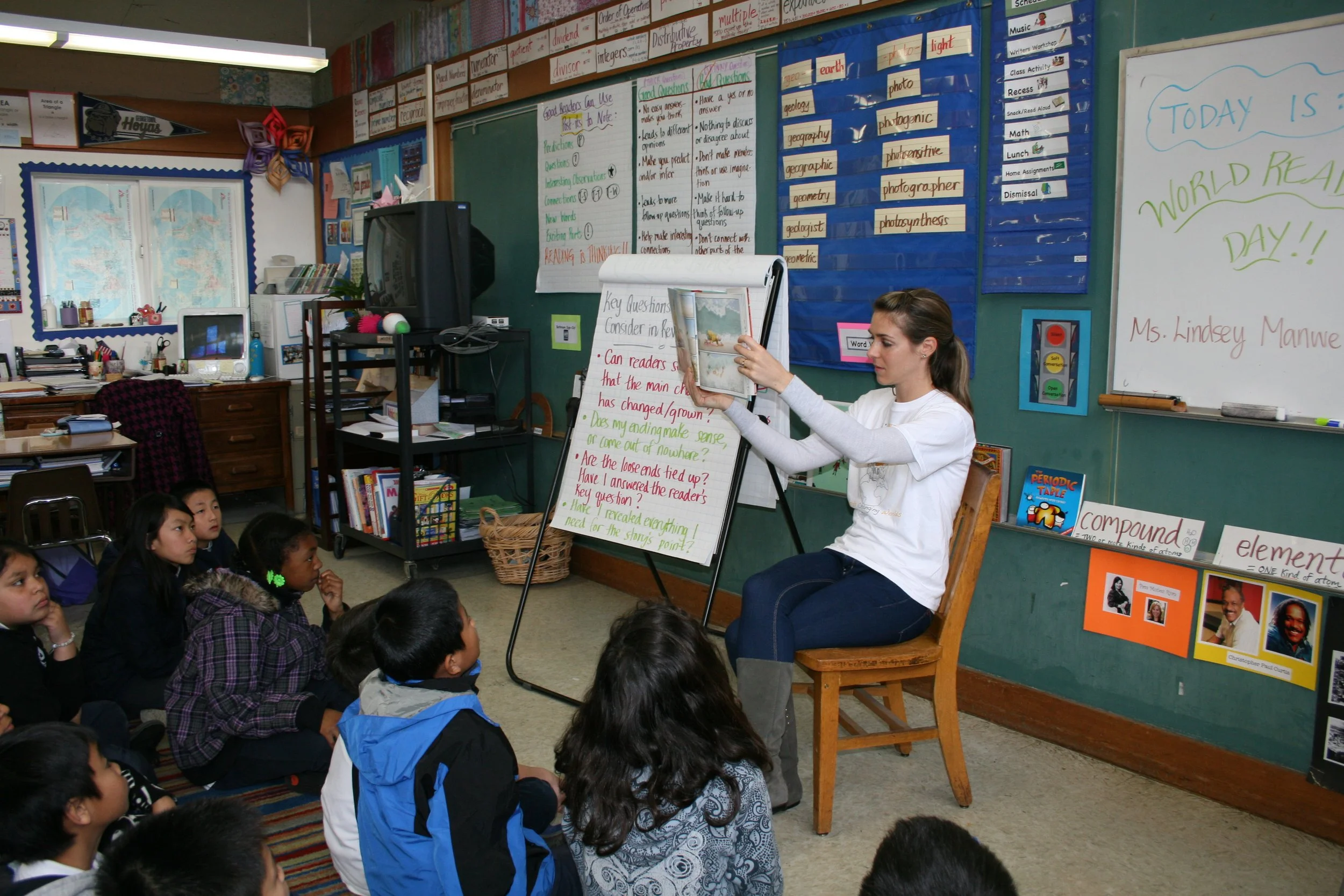We all know that the reading experience doesn't end simply because we finish a book. The stories we read live on in our minds and come to life through the discussions we have about them. Part of the important work we all do as readers is thinking deeply about what we have read and coming up with our own opinion about the characters and big ideas. Get your children in the habit of being engaged and thoughtful close readers and be amazed at what you all learn about each other in the process. The conversations you have around your favorite stories will be a window into your child's inner life. Here are five ways to spark family reading discussions.
1. Read aloud before a meal.
The coziness of bedtime lends itself well to a read aloud but sometimes the need for sleep at that hour means you don't get to debrief with your child after reading. Try opening a family breakfast or dinner with a read aloud, a time where you are all lively and gathered together. Ease your family into the discussion by going around the table and sharing your favorite part of the story, your guess about what might happen next (if you are reading a chapter book) or what could have happened after the story ended (characters' lives go on!). Always prompt your child to back up their thoughts with an example from the text, and model this behavior when you share your own opinions.
2. Start a quote of the week routine.
At LitWorld we write the quotes that inspire us on the walls of our office with erasable markers or share them over email. Team members respond with their reactions to the words and relate them back to our organization's core values. Share inspiring words with your children by taking famous quotes (or quotes from people you know!) or excerpts from a book or poem. Display the quote in a central area of your home so that your child will see the words regular during his day-to-day routine. At the end of the week have a discussion about your interpretation of the quote. Ask each family member: Why do you find it so meaningful? What does it remind you of? What questions did you have after reading the quote? What is the author trying to tell us?
3. Add a new twist to family movie night.
Wonderful books have inspired wonderful movies for ages. Knowing that a favorite book exists in movie form is a great reading inspiration for children, and a comfort that the adventure isn't quite over yet even though the last page has been read. Find age appropriate book and movie pairings (from fairy tales to classics) and read the book as a family before watching the movie. Before you watch the movie predict how it will be similar or different than the book. After your screening talk about whether or not your predictions were true. Discuss what you all wish had been in the movie and why certain parts were left out. How was the setting different than what you imagined as you read the book?
4. Leave notes for your loved ones in the margins.
One of life's great joys is recommending the right book to the right reader. Share the books you loved as a child and teen with your kids. Before you hand them over re-read them and leave post-its throughout the book or actual notes in the margins for your child to discover on a "literary scavenger hunt" of sorts. Leave a note next to a beloved passage that says, "This is my favorite part of the book, come find me after you read this page!" You can also leave questions to get your child thinking about characters and plot: "I've never understood why the character did this, what do you think?" Have your child write post-it notes of his own and then pass on to a sibling or another family member to keep the book buddy train rolling.
5. Share your independent reading lives
When it's time for everyone to dig into their own independent reading keep everyone in the loop by creating a "What We're Reading" chart. Have each family member record the books they read in a fun way so that everyone can see who's reading what and ask questions along the way. There could be a column for title, author, genre, a short review (or rating system such as stars or thumbs up/down) and the name of a person they know who should read the book next. As simple as it sounds, being a part of the family reading club will inspire your children to want to read to add new titles to the chart and follow in your reading role model footsteps.















